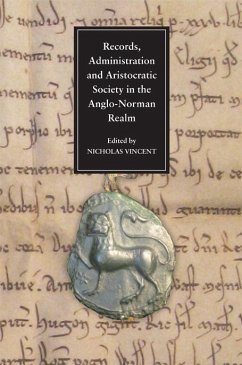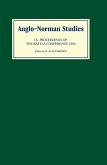A study of the implications and practices of wills and will-making in Anglo-Saxon society, and of the varieties of inheritance strategies and commemorative arrangements adopted.
A remarkable series of Anglo-Saxon wills have survived, spanning the period from the beginning of the ninth century to the years immediately following the Norman Conquest. Written in Old English, they reflect the significance of the vernacular, not only in royal administration during this period, but in the recording of a range of individual transactions. They show wealthy laymen and women, and clerics, from kings and bishops to those of thegnly status, disposing of land and chattels, and recognising ties of kinship, friendship, lordship and service through their bequests; and whilst land is of prime importance, the mention in some wills of such valuable items as tableware, furnishings, clothing, jewellery and weapons provides an insight into lifestyle at the time.
Despite their importance, no study has hitherto been specifically devoted to Anglo-Saxon wills in their social and historical context, a gap which this book aims to fill. While the wills themselves can be vague and allusive, by establishing patterns of bequeathing, and by drawing on other resources, the author sheds light on the factors which influenced men and womenin making appropriate provision for their property.
Linda Tollerton gained her PhD from the University of York.
A remarkable series of Anglo-Saxon wills have survived, spanning the period from the beginning of the ninth century to the years immediately following the Norman Conquest. Written in Old English, they reflect the significance of the vernacular, not only in royal administration during this period, but in the recording of a range of individual transactions. They show wealthy laymen and women, and clerics, from kings and bishops to those of thegnly status, disposing of land and chattels, and recognising ties of kinship, friendship, lordship and service through their bequests; and whilst land is of prime importance, the mention in some wills of such valuable items as tableware, furnishings, clothing, jewellery and weapons provides an insight into lifestyle at the time.
Despite their importance, no study has hitherto been specifically devoted to Anglo-Saxon wills in their social and historical context, a gap which this book aims to fill. While the wills themselves can be vague and allusive, by establishing patterns of bequeathing, and by drawing on other resources, the author sheds light on the factors which influenced men and womenin making appropriate provision for their property.
Linda Tollerton gained her PhD from the University of York.
Dieser Download kann aus rechtlichen Gründen nur mit Rechnungsadresse in A, D ausgeliefert werden.









